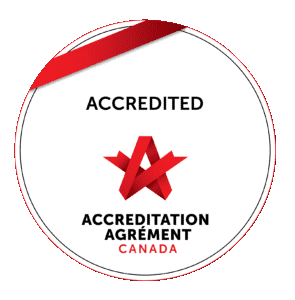Content Warning: Residential Schools
The 24-hour National Indian Residential School Crisis Line provides crisis support for former residential schools and their families toll-free at 1-866-925-4419.
The Missing and Murdered Indigenous Women and Girls Crisis Line can be accessed toll-free at 1-844-413-6649.
First Nations, Inuit and Métis seeking immediate emotional support can contact the Hope for Wellness Help Line toll-free at 1-855-242-3310 or by online chat at hopeforwellness.ca.
—
In 2021, the Government of Canada passed legislation to make Sept. 30 a federal statutory holiday called the National Day for Truth and Reconciliation, fulfilling one of the 94 Calls to Action from the Truth and Reconciliation Commission.
The day honours Residential School survivors, their families and communities, and ensures that public commemoration of the history and legacy of residential schools remains a vital component of the reconciliation process.
Theresa Cardinal is a residential school survivor. Theresa’s role as CASA Mental Health’s Professional Practice Lead, Cultural, is in part to help contribute to educating CASA about Indigenous awareness, practices and ceremony.
She says that for her, there will not be any reconciliation unless truth happens first.
“For me the most important part is to be able to understand or to know the true story of the residential school experience and how it has shaped my people, Indigenous peoples, and to truly understand the trauma of that experience will continue for many, many generations,” Theresa says.
At CASA, the National Day for Truth and Reconciliation is a professional development day focused on Indigenous learning. This year, the day will be observed on Oct. 2. As a result, the organization will not see patients and day programs and CASA House will be closed.
It is encouraged to use this day to pursue individual learning and reflection, participate in a community event or collaborative team activities geared towards the meaningful intent of truth and reconciliation.
CASA will commemorate the National Day for Truth and Reconciliation on Sept. 27 with a ceremony which will include the raising of a Treaty 6 flag at CASA Centre. Staff are also encouraged to wear orange t-shirts in support.
Theresa says the raising of the Treaty 6 flag is important because it is a part of the identity of the Indigenous peoples in the area. Many survivors lost their identity when they were taken to residential schools.
“It’s a piece of our identity that we need to hold on to, that we know and understand is ours and we’re slowly reclaiming a lot of the stuff that we lost,” she says. “This flag is another important piece of acknowledging our nationhood.”
With the National Day for Truth and Reconciliation honouring survivors and commemorating the history and legacy of residential schools, survivors are also reclaiming their voices.
“A lot of us are regaining our voices especially the ones who lost it in the residential school system and now are using their voices to tell the stories which is excellent,” Theresa says. “I applaud all the survivors who are using their voices in this way to teach because that’s the way that it should be.”
Resources
National Centre for Truth and Reconciliation: 94 Calls to Action
Canada Listens: Gord Downie/Chanie Wenjack
United Nation Declaration on the Rights of Indigenous Peoples: Handbook
Mental Health Continuum Indigenous Framework
Indigenous Canada
Reconciliation Canada: Personal Pledge Forms
Orange Shirt Day
Orange Shirt Day: Edmonton Events

